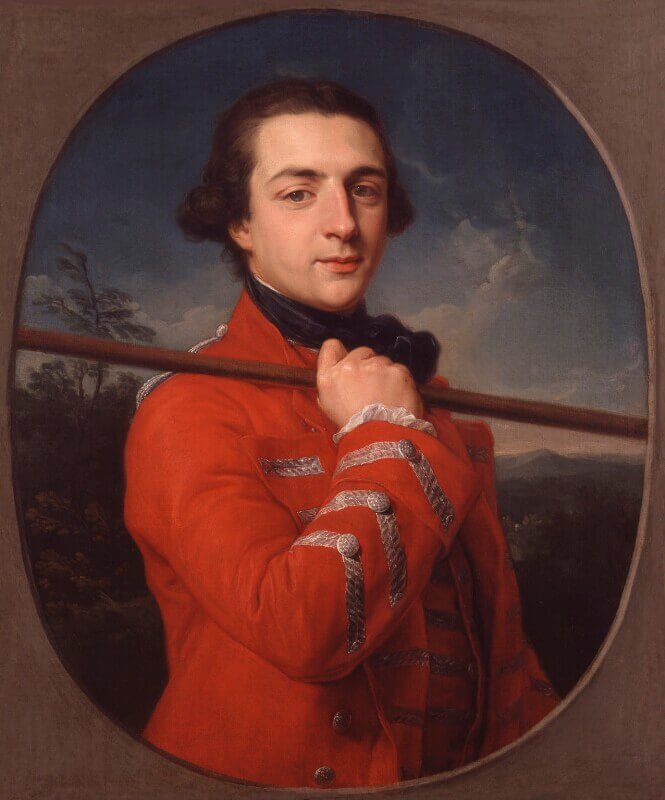Augustus FitzRoy, 3rd Duke of Grafton
Whig Party
Image credit: Augustus Henry FitzRoy, 3rd Duke of Grafton, Pompeo Batoni, 1762. Photo © National Portrait Gallery, London licensed under CC BY-NC-ND 3.0
Augustus FitzRoy, 3rd Duke of Grafton
Wisdom is at no time more conspicuous, nor more amiable, than in the acknowledgment of error.
Whig Party
October 1768 - January 1770
14 Oct 1768 - 28 Jan 1770

Image credit: Augustus Henry FitzRoy, 3rd Duke of Grafton, Pompeo Batoni, 1762. Photo © National Portrait Gallery, London licensed under CC BY-NC-ND 3.0
Key Facts
Tenure dates
14 Oct 1768 - 28 Jan 1770
Length of tenure
1 year, 106 days
Party
Whig Party
Spouses
Anne Liddell
Elizabeth Wrottesley
Born
28 Sep 1735
Died
14 Mar 1811 (aged 75 years)
Resting place
St Genevieve Churchyard, Euston, Suffolk, England
About The Duke of Grafton
The Duke of Grafton believed, according to Horace Walpole, that ‘the world should be postponed to a whore and a horse – race’. He was the last of a succession of weak Prime Ministers during the 1760s who struggled with the challenges presented by victory in the Seven Years’ War.
Lord Grafton was born Augustus Henry FitzRoy into an aristocratic family in 1735. He was a fourth-generation descendant of King Charles II and his mistress the Duchess of Cleveland. He was educated at Newcome’s School in Hackney and Westminster School, and then at Peterhouse College at the University of Cambridge.
Grafton became MP for Boroughbridge, a pocket borough in 1756, though he was elevated to the House of Lords as the Duke of Grafton in 1757. He associated with the Whig faction in Parliament. He was appointed Northern Secretary in Lord Rockingham’s government.
Then, when Lord Chatham was appointed Prime Minister in 1766, he asked Grafton to be First Lord of the Treasury. Chatham’s long periods of mental illness led to Grafton becoming effectively the leader of the government. In October 1767, Lord North was appointed to the Chancellor, bringing his immense parliamentary skills to the government.
One year later, when Chatham resigned, the King asked Grafton to become Prime Minister at the age of just 33, the youngest holder of the office until Pitt the Younger in 1783.
Grafton was not an effective Prime Minister. He lacked self-confidence and was not a dominant figure. Nor could he easily command Parliament from his position in the Lords.
Grafton’s inclinations were for conciliatory measures with the American colonists (as with Chatham), but he could not make his Cabinet agree. They voted to retain the duty on tea.
One reform that Grafton did pass was the Octennial Act, requiring elections in Ireland every eight years, rather than only on the death of the monarch.
But opposition to the rather lackadaisical Grafton was growing, with an anonymous pamphlet called ‘Junius’ printing blistering attacks on his leadership.
In 1770, Lord Camden and the Marquis of Granby resigned. These were Chatham supporters, and their departure from the government weakened it considerably. Grafton attempted to stabilise the situation by appointing Charles Yorcke, but Yorcke died three days later. After a few further efforts to shore up his support, Grafton decided to resign after a premiership that lasted just 1 year and 106 days.
After his premiership, Grafton served as Lord Privy Seal in three governments (though resigned from Lord North’s in 1775 over the coercive policy towards the Americans). He wrote several books on religion towards the end of his life. To date, his post-premiership life was the longest of any Prime Miniter (41 years and 45 days).
Grafton married Anne Liddell in 1756, but the marriage was very unhappy, despite three children. Both parties abandoned their vows (with Grafton’s public courting of Nancy Parsons scandalising polite society). In 1769, by act of Parliament, Grafton obtained a divorce and married Elizabeth Wrottesley, with whom he had thirteen children.
Grafton died in 1811.
Collections & Content
Andrew Bonar Law
Bonar Law was the shortest serving Prime Minister of the 20th Century, being in office for just 209 days. He was gravely ill when he t...
The Earl of Rosebery
Lord Rosebery was Gladstone’s successor and the most recent Prime Minister whose entire parliamentary career...
Arthur James Balfour
Arthur Balfour was Salisbury’s successor. He had a reputation as a good parliamentarian, a capable minister, and an excellent ta...
The Duke of Wellington
Wellington is a Prime Minister who is today largely remembered for achievements unrelated to his premiership. ...
Benjamin Disraeli
Charming, brilliant, witty, visionary, colourful, and unconventional, Benjamin Disraeli (nicknamed ‘Dizzy’) was one of the greate...
Boris Johnson
Boris Johnson is one of the most charismatic and controversial politicians of the modern era. To supporters, he was an authentic voice wh...
The Earl Grey
Earl Grey was the great aristocratic reformer. His government passed the ‘Great Reform Act of 1832’, ending an entire e...
The Marquess of Rockingham
Lord Rockingham was a powerful Whig parliamentary leader and politician, effectively creating a politi...


